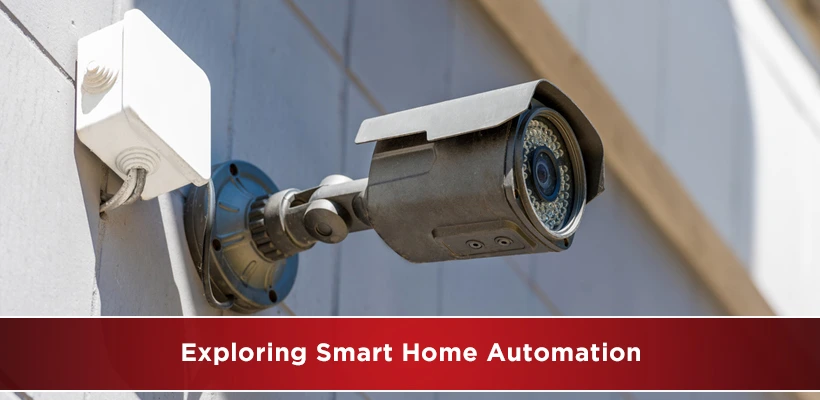
Convenience and efficiency rule our lives in the fast-paced modern environment. The ideal of this contemporary way of life is smart home automation, which lets us control and monitor many facets of our houses with only a few taps on our devices. This comprehensive manual will explore the fascinating world of smart home automation, from its foundations to its sophisticated uses. Join us on this path of technological advancement and see how it may make your house a safer, more clever place.
Exploring Smart Home Automation
What Is Smart Home Automation?
Smart home automation is the integration of technology into many facets of your house to improve general quality of life, security, energy economy, and convenience. Using smartphones, tablets, or voice commands, it links systems and gadgets to a central hub or network so you may remotely operate them.
The Benefits of Smart Home Automation
- Imagine just one touch on your phone controlling your temperature, lights, and security system. Unmatched convenience comes from smart home automation.
- Automating your heating, cooling, and lighting systems guarantees that they are only active when required, therefore helping you to save on energy expenditures.
- Real-time monitoring of your house and alarms—even remotely locking doors or viewing security camera video— improves security.
- Make your automation fit your way of life. Establish preferences and timetables; perhaps, design original sceneries for certain events.
- Enhanced Home Value: Smart homes are in demand; hence, your house will attract more possible purchasers.
The Evolution of Home Automation
Home automation originated in the early 20th century when electrical systems became prevalent. However, in recent times, technology has significantly transformed our homes.
How Does Smart Home Automation Work?
The Internet of Things (IoT) underlies smart home automation fundamentally. IoT lets gadgets interact and speak with one another via the internet. Here's how it operates:
- Smart thermostats, cameras, and lighting are just a few of the sensors and appliances your house boasts.
- These gadgets establish a flawless network of communication by connecting to a central hub or a Wi-Fi network.
- You may remotely operate these devices using specialized applications or voice commands through virtual assistants like Amazon Alexa or Google Assistant.
- Establish automation rules to initiate actions based on specific criteria, such as activating lights upon detecting motion or adjusting the thermostat based on your calendar.
Exploring the Possibilities
Smart Lighting
Easy customization of the atmosphere of your house is made possible by smart lighting solutions. From modifying colors to brightness levels, you may create the ideal atmosphere for any event.
Home Security
Smart locks, doorbell cameras, and motion detectors will improve the security of your house. Get quick warnings and even let trustworthy people access from a distance.
Entertainment and Media
Voice-activated audio and video systems will turn your living room into a home theater. Just a button will stream your preferred material.
Environmental Control
By regulating heating and cooling, smart thermostats and climate control systems help you save on energy expenditures and maintain comfort.
Conclusion
Investigating smart home automation is similar to entering the future. Undoubtedly, it offers convenience, security, and energy efficiency. The correct tools and some imagination can let you design a very intelligent and responsive living environment. Starting your path in the realm of smart home automation now will enable you to enjoy a fresh degree of comfort and control in your house.
Call (844) 777-6668 to choose smart home automation now!
FAQs
1. How secure is smart home automation?
Smart home systems are designed with security in mind. However, it's crucial to follow best practices, such as regularly updating firmware and using strong, unique passwords.
2. Can I integrate different brands of smart devices?
Yes, many smart home platforms support a wide range of devices from different manufacturers. Please make sure they are compatible with your selected hub or network.
3. What if I lose my smartphone or internet connection?
Most smart home systems have fail-safes in place. If your primary connection fails, you can usually control devices locally or through a backup method.
4. Are smart homes accessible for people with disabilities?
Absolutely. Smart home automation can greatly improve accessibility by allowing voice commands and remote control of various home functions.
5. How can I begin automating my smart home?
Begin by identifying your needs and goals. Then, choose a central hub or platform that suits your preferences. Start with a few devices and gradually expand your smart home ecosystem.
6. Is smart home automation cost-effective?
While there is an initial investment, the long-term savings on energy bills and potential increase in home value make it a wise financial decision.

